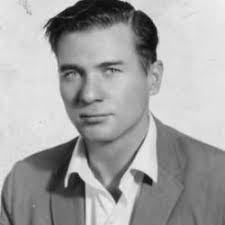
It’s hard to keep up with family birthdays, much less venerated writers’ birthdays. You stumble across them by accident on the Internet, however. How else would I know that Ivan Turgenev just turned 200 on Nov. 9th?
Like many bibliophiles, I have fond memories of my Russian phase. In fact, if my literary leanings were to be portrayed in print, they might be titled Portrait of the Russian Lit. Reader as a Young Man. As a teen, I was consuming Russkies like pizzas: Turgenev, Chekhov, Pushkin, Lermontov, Dostoevsky, Gogol, Bulgakov, and especially Tolstoy.
But Turgenev was one of the first. Chiefly reading Sketches from a Hunter’s Album (which has since been published under many like-sounding names), a collection of short stories that I will forever associate with the place where I read them, a Maine farmhouse sitting on top of a hill. I was holed up in that house during a freak November nor’easter.
But what did that matter to me? I had my Turgenev, my wood-burning Franklin stove, plenty of food and drink, and friends and family who had joined me on a deer hunting trip (the least of my ambitions at the time… I was more there for atmosphere than venison).
When I returned to Connecticut days after the storm abated, I continued my Turgenev bender. I still have the black Penguin paperbacks on my bookshelf, too: Fathers and Sons, Home of the Gentry, Rudin, On the Eve.
Now it’s been decades since I read poor Ivan Turgenev’s. He waits patiently on the shelf in hopes of my return. The prodigal reader, and all that. But he’d be happy to know that he did inspire a poem. Appearing in my first collection, it’s called, appropriately enough, “Turgenev Time.”
A gift, then, for Ivan with appreciation:
Turgenev Time
by Ken Craft
As a young man, I lay in a finished
basement for years, bound
to an oatmeal carpet, sickly and citrus-skinned
in the tangerine glow of incandescent bulbs.
Outside it was winter in Connecticut; far
away it was Hell in Vietnam; but inside it was merely
hard Berber rug, a gas heater,
and my gentrified Russian novels.
The knot-paneled room offered neither hope
nor despair nor thought of escape. Warm-woozy,
I dozed, awakened, read
more as the heater exhaled
comfort.
In the books, lime trees rattled and rooks took wing.
Bough to fragrant leaf, kvas-drinking peasants
laughed and cursed. On the wind came the smells
of horse and rain and superfluous ideas.
Outside it was spring in Oryol; inside it was
black-backed Penguins, ocher-edged paper,
ink in Monotype Bembo, the chalky outline
of my sun-starved body on the floor.
I remember my mother’s art deco clock, gold spikes
gripping the dark pine wall, how it dripped
hours and minutes, weighing tick for heavy tick
with the pinging heater, submerging
me and my future pasts—all of them—
in the calm killing current of Turgenev time.
— © Ken Craft, The Indifferent World, Future Cycle Press, 2016
